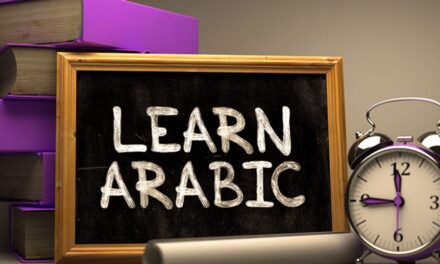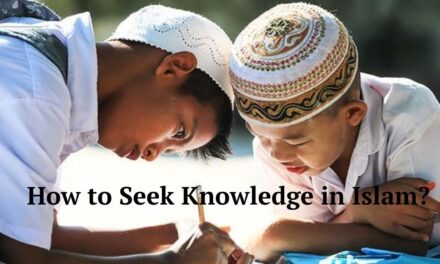All praises for Allah and may peace and blessings be upon the Messenger of Allah
Allah has taken a covenant from humankind that we will not worship anyone except Him. And also that we will only worship Him in a manner legislated by Him. And these are from the prerequisites of our testimony (Shahadatayn).
As Allah, the Exalted, said:
{And I (Allah) created the jinn and humans for worshipping Me Alone}
[Sūrah al-Dhāriyāt: 56]
And His saying:
{Unquestionably, His is the creation and the command; blessed is Allah, Lord of the worlds}
[Sūrah al-Aʿrāf: 54]
And this is the foundation of Islam, around which the mission of all the Prophets and Messengers of Allah (may Allah’s peace and blessings be upon them) revolves.
Verily, the one who connects us to Allah is the Messenger of Allah, Muhammad صلی الله علیه وسلم. So, we testify that he has conveyed the message, dutifully fulfilled the trust (al-Amanah of Messengership), and He is the one with whom Allah sealed the prophethood and messengership.
Allah completed through Muhammad the deen (religion), made his Shariah (legislation) nullifier of all that which had preceded from the legislations of those sent before him, authoritative over the legislations of the past. Thus, it becomes imperative for every Muslim to follow the Messenger of Allah, find solace in his teachings. Indeed, he who follows him has followed Allah and he who disobeys him has disobeyed Allah.
Imam Ahmad (may Allah have mercy on him) said:
[The one who guides is Allah, the guideline is the Qur’an, the illustrator is the Messenger, the ones who infer are the People of knowledge. These are the fundamentals of Islam]
[at-Tahbeer Sharh at-Tahreer 1/ 208]
People from the times of our pious predecessors used to ask religious rulings from any scholar they trusted. This process continued from the time of Sahabah to the era of four great Imams, Abu Haneefah, Malik, Shafie and Ahmad. Imam Shafie and Imam Ahmad both studied from Imam Abu Yousuf, student of Imam Abu Haneefah. Imam Shafie studied from Malik; Imam Ahmad studied from Imam Shafie & Imam Shafie also took from Imam Ahmad.
They all are descendants of one another, belonging to the same family, for they all are inheritors of Prophet صلی الله علیه وسلم {Ulama are inheritors of Prophets} [Abu Dawud 3641]
Allah honoured these giants of the Ummah with students who preserved their fiqh (knowledge). They narrated and compiled their knowledge in the books and spread it among later generations. These schools of thought accumulated almost the whole knowledge of salaf, Sahabah and their followers and those after them from the Imams of this Ummah. The knowledge of these schools was narrated from salaf to khalaf, generation after generation with precision.
Every ruling in the Islamic Jurisprudence associated to any of these schools of thought (madahib) falls in one of the following three types: –
- Correct rulings which are based on the evidence from Quran, Sunnah or Ijma. It is obligatory to abide by such as it is from following the Prophet صلى الله عليه وسلم and not merely upon the taqleed of the Madhab’s scholar.
- Marjooh (non-preponderant) rulings which are in opposition to the Islamic evidences. So, it is not permissible to abide by such rulings or to make a blind-fanaticism for the Madhab’s scholar in such rulings.
- The rulings in issues of ijtihad, wherein the Islamic evidences vary and are therefore object of examination/study of Faqeeh (jurisprudent). These types of rulings are present in abundance in every Madhab because new issues keep popping up and will keep on popping up forever.
The question now arises: Who is qualified to declare that a certain opinion of a certain Imam is not in conformity with the daleel (evidence) and who will study the issues of ijtihad to reach rulings regarding them?
The answer without doubt is that it is a scholar/mufti/mujtahid who is qualified for it.
Therefore, people are of two types:
- Mujtahid: One who possesses the necessary tools of knowledge by which he examines the evidences and reaches a ruling.
- Muqallid: One who asks a scholar/mufti and follows the ruling which is given to him.
Definition of Taqlid & Ittiba
- Taqlid means adhering to the madhab of someone in some shari ruling, whose statement is not a hujjah (proof) in itself.
- Ittiba means adhering to a ruling proven with a hujjah from the Quran, or Sunnah, or Ijma without any contradiction.
Ruling & Types of Taqlid
It is known by consensus that it is obligatory upon every commoner (one who does not possess the tools of ijtihad) from the Muslims who do not have the ability to study the Islamic legislations, to ask the People of Knowledge and act upon the verdict given by them. As Allah, the exalted, said:
{ask those who know the Scripture if you know not}
[Sūrah al-Naḥl: 43]
Imam Abu Umar Yousuf ibn Abdul Bar (died 463H) said:
[The Ulama did not differ that it is obligatory for commoners to do taqlid of their scholars. And they are intended by the statement of Allah {ask those who know the Scripture if you know not}. There is ijma (consensus) that a blind person has to do taqlid of someone whom he trusts about the right direction of qibla if he himself wasn’t sure. Similarly, a person who does not know what he worships Allah with, he ought to do taqlid of a scholar. Just like that, the ulama did not differ that it is not permissible for commoners to issue verdicts because they don’t know the meanings by which something can be declared halal (permissible) or haram (prohibited) and an opinion can be formed regarding knowledge]
[Jam’i Bayanil-Ilm wa Fadhlihi 2/ 170]
Taqlid is of two types:
Legislated Taqlid and it is of three types:
- Taqlid done by a commoner of a scholar who is qualified to issue verdicts. A commoner can do taqlid of any well known knowledgeable scholar without any restriction.
- Taqlid done by a person who has some knowledge, but he does not possess the tools to ijtihad.
- Taqlid by a mujtahid of some other mujtahid in some matters in which he doesn’t reach any ruling on his own or some new issue takes place with him and he doesn’t have the time to examine .
Prohibited Taqlid and it is of three types:
- Taqlid in those matters in which rulings are clear from the Quran, Sunnah & Ijma. It is not permissible to do taqlid in these matters nor ijtihad; rather ittiba has to be made.
- Taqlid by a mujtahid, in an issue about which he has his own Ijtihad, of some other mujtahid whose ijtihad is different in that issue.
- Taqlid of only one scholar while leaving other scholars. This type of taqlid never took place in the best generations.
Harshness and laxity in the issue of Taqlid
When we look at our society, we find two extremes in this issue:
- Those who make it obligatory to do taqlid of only one scholar!
- Those who consider every taqlid as haram and that everyone should be muhaqqiq!
As for the former, people should realise that there is no evidence from the Quran & Sunnah that promotes this type of taqlid and no one from the companions of the Messenger of Allah has asked anyone to do this. In fact, it never existed in the best three generations (qarn), it was innovated in the fourth qarn.
Such a practice of Taqlid opposes the statement of the four great Imams of this Ummah, for no one from them asked to do taqlid of only one specific individual without considering other scholars. He who claims other than this, should produce the proof – and he will never be able to bring- upon the fact that someone from the first three generations adhered to the madhab of only one specific individual.
It will be said to them: Do you have any evidence regarding what you claim?
If they said: Yes, they falsified the taqlid, for it is the evidence which made it obligatory with them not taqlid.
If they said: we claim it without any evidence
It will be said to them: How can you shed the blood of people, declare wealth and private parts permissible while Allah declares these things haram except with evidence?
If they say: we know we are correct even if we don’t know the evidence because we did taqlid of a scholar and he gives his opinions only with evidence which is not known to us.
It will be said to them: If it is permissible to do taqlid of your scholar because he doesn’t give his opinion except with evidence not known to you, then doing taqlid of the teacher of your scholar is better, for he doesn’t voice his opinion except with evidence not known to your teacher, like your teacher doesn’t give an opinion except with evidence not known to you!
As for the latter ones who think everyone should examine the evidences, then they should know that the conditions of Ijtihaad are not so simple that every Muslim can undertake the task of studying the evidences (tahqeeq), for it requires knowledge of the Aarabic language, Quran, Sunnah, Ijma, Naasikh & Mansookh, Aam & Khaas, Mutlaq & Muqayyad and many other sciences by which a person becomes qualified to make tahqeeq.
Also, if some new issue props up & we don’t allow a common Muslim to make permissible for him, he will land into trouble. Reaching the level of Ijtihaad is a difficult academic process. Not everyone is required to do that. In fact he may not reach this level, therefore ahkaam (rulings) will be wasted. And if we tell people to do tahqeeq on their own, it means their worldly affairs will come to halt, the crops and cattle will be destroyed ! And this is a hardship & difficulty which is not known from our shariah, Allah said:
{He has not laid upon you in religion any hardship}
[Surah Al-Hajj: 78]
Conclusion
People of wisdom always stay balanced. And people of extremism are always radical. The notion that everyone should study and seek his own understanding is a lame concept. It is not possible for everyone to do so. The academic skills required for this are too much for a common Muslim to accomplish. And similarly the people who ask us to blindly follow one single scholar are wrong. No one from the Ummah of Muhammad is free from error. To the extent that the sahaba differed in many issues of the religion and our scholars have to choose one ruling over the other. I mean rulings that come from the sahaba. So, if such is the case with the best people after the Prophets and Messengers, then what should our approach be towards those who are lower than them?!
[See: Rawdatun Nazir 2/380-384 of Ibn Qudamah, Jam’i Bayanil-Ilm wa Fadhlihi 2/ 158-176 of Ibn Abdul Bar, al-madkhal al-mufassal 1/ 53-76 of Bakr Abu Zayd, at-Taqlid wa ahkaamuhu 11-30 of S’ad ash-shathri, Ma’alim al-mazhab al-hanbali 13-73 of Ziyab ibn S’ad, al-madkhal 388-393 of Ibn Badran, Adwa al-Bayan 7/304-378 of Muhammad al-amin ash-shankeeti, Sharh al-Usool min Ilmil Usool of Ibn Uthaimeen 683-699]







Recent Comments